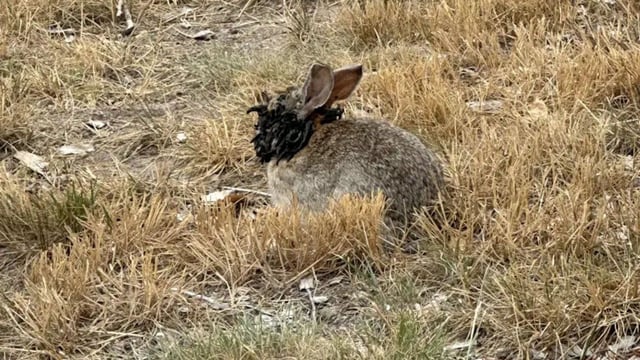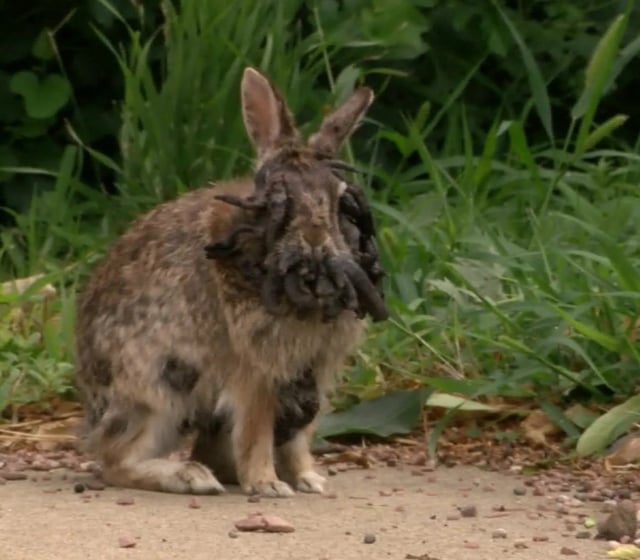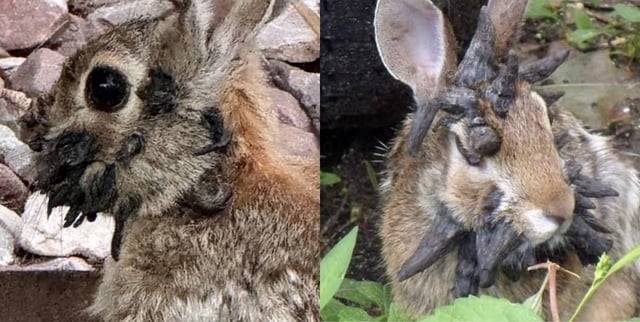Overview
- Colorado Parks and Wildlife confirmed that elongated keratinized growths on wild cottontail rabbits are caused by Shope papillomavirus.
- The virus transmits primarily through insect vectors such as mosquitoes, fleas and ticks, leading to higher incidence in warmer months.
- Infected rabbits develop spike-like tumors that can hinder eating, vision or breathing and may occasionally progress to squamous cell carcinoma.
- No practical treatment exists for wild populations, prompting officials to instruct residents to observe from a distance and avoid handling.
- Outdoor domestic rabbits can receive veterinary care to have tumors surgically removed and prevent severe health complications.



